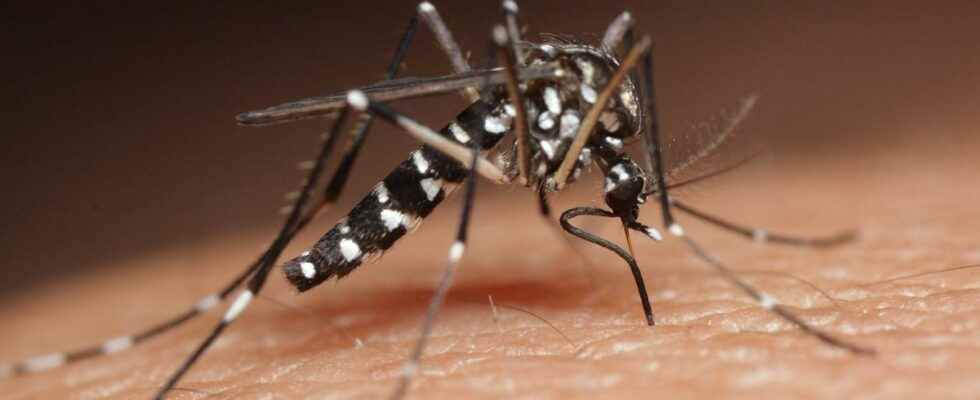Published on
Updated
Reading 1 min.
Both Zika virus and Dengue virus manipulate hosts into emitting more acetophenone, an odorous molecule that attracts mosquitoes. A strategy that involves modifying our skin microbiota.
The strategies put in place by viruses never cease to amaze us. A Chinese study finds that the dengue and Zika viruses can alter the body odor of infected individuals, making them more “appetizing” to mosquitoes. A technique, which would help viruses to reach new prey.
70% of mosquitoes prefer to bite already infected individuals
According to their work – conducted on mice and human hands – tiger mosquitoes largely prefer to feed on dengue-infected individuals (70%), rather than bite healthy individuals (30%).
Mice infected with Zika or dengue fever also produced ten times more odorous compounds than healthy mice. In another test, around 70% of the mosquitoes naturally headed for the group of infected mice. Scientists have therefore tried to identify the volatile substance in question.
“The virus can manipulate the host’s skin microbiome to attract more mosquitoes and spread faster!“says researcher Penghua Wang, who participated in the study.
Result: it is acetophenone, a molecule suspended in the air produced by bacteria present in the microbiota of our skin (Bacillus), which turns out to be the main culprit.
“Only acetophenone, but not the other compounds, attracted more mosquitoes than the comparator (70% vs. 30%)”, observe the researchers in the publication.
In fact, humans are bitten more when they are infected with one of the two viruses.
A vitamin A injection to alter body odor
But the good news is that the attractiveness of humans could be altered, the researchers say.
Indeed, the injection of vitamin A in infected mice showed a drop in the number of bacteria involved (Bacillus), and therefore in the amount of acetophenone.
The team now plans to test this treatment in Malaysia, where the number of patients is exploding, to reduce the transmission of dengue fever.
